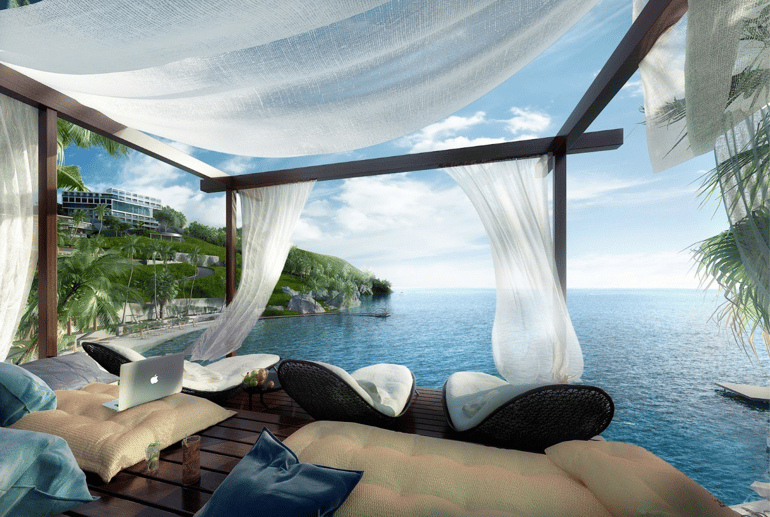To be honest, Slow Tourism has always been present. However, as a consequence of the Covid-19 outbreak and the resulting shift in travel expectations, the popularity of this alternative way of discovering destinations has surged.
What is slow tourism?
A study conducted by Allison Caffyn in 2012 defined slow tourism as a type of travelling that focuses on the destination's environment and local community. Typically these are the guests who want to experience more than just a hotel stay. Their desire is to get to know the natural surroundings, local cuisine, sustainable practices, culture and traditions, and some of the special qualities of their destination.
Slow tourism can be applied across the entire guest stay – prior, during or even after the stay, representing a significant opportunity for hotels to reshape their offering while giving back to the local community. But, can any property take advantage of it? It’s a matter of understanding whether this way of traveling matches the expectations of your target audience and looking for imaginative ways to incorporate this new thinking into your hotel concept.
Not sure where to start? Let’s explore some creative strategies that other hotel brands are using to adapt to the Slow Tourism phenomenon.
1. Blending in with the natural surroundings of Colombia
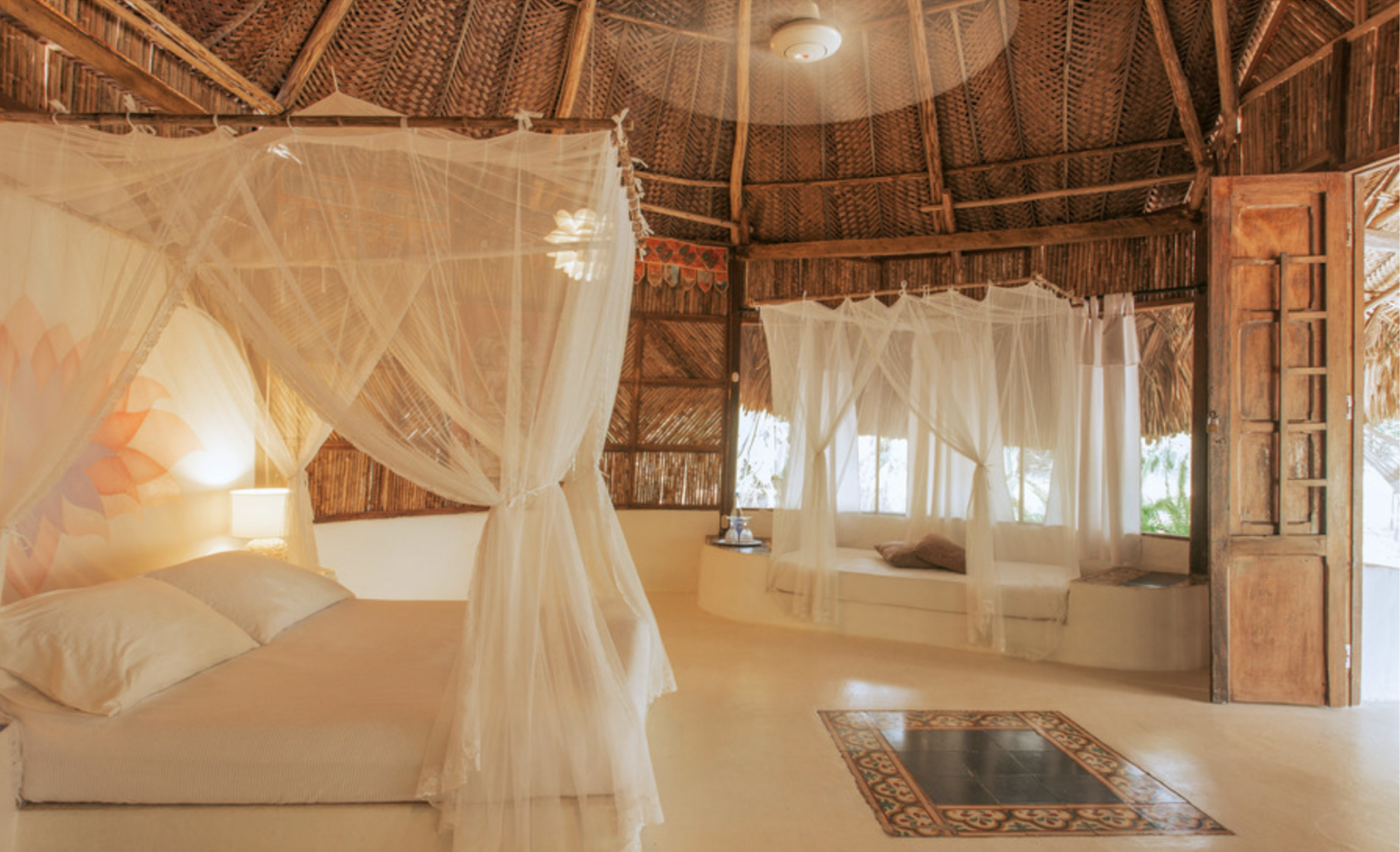 Hotel Playa Koralia
Hotel Playa Koralia
All rooms are linked to the cultural identity of the country, as these have been built with natural materials following the traditional design of Colombia. What’s more, their food offering focuses on slow and traditional food, such as local fish and vegetable dishes, offering guests the pleasure of the freshest and highest quality natural flavors. Not limiting their offerings just there, the hotel provides activities to connect deeply with the natural spots around the property. Forest walks and river cruises are some of the options guests have available to connect deeply with the culture and environment.
By organically promoting their facilities and services on Instagram, the brand has been able to spread the word across their 21k+ followers while keeping promotional costs down. They often mention how they operate using sustainable practices and promoting a healthy lifestyle by using organic and plastic-free products. Who wouldn’t want to stay there?
2. Pushing for change
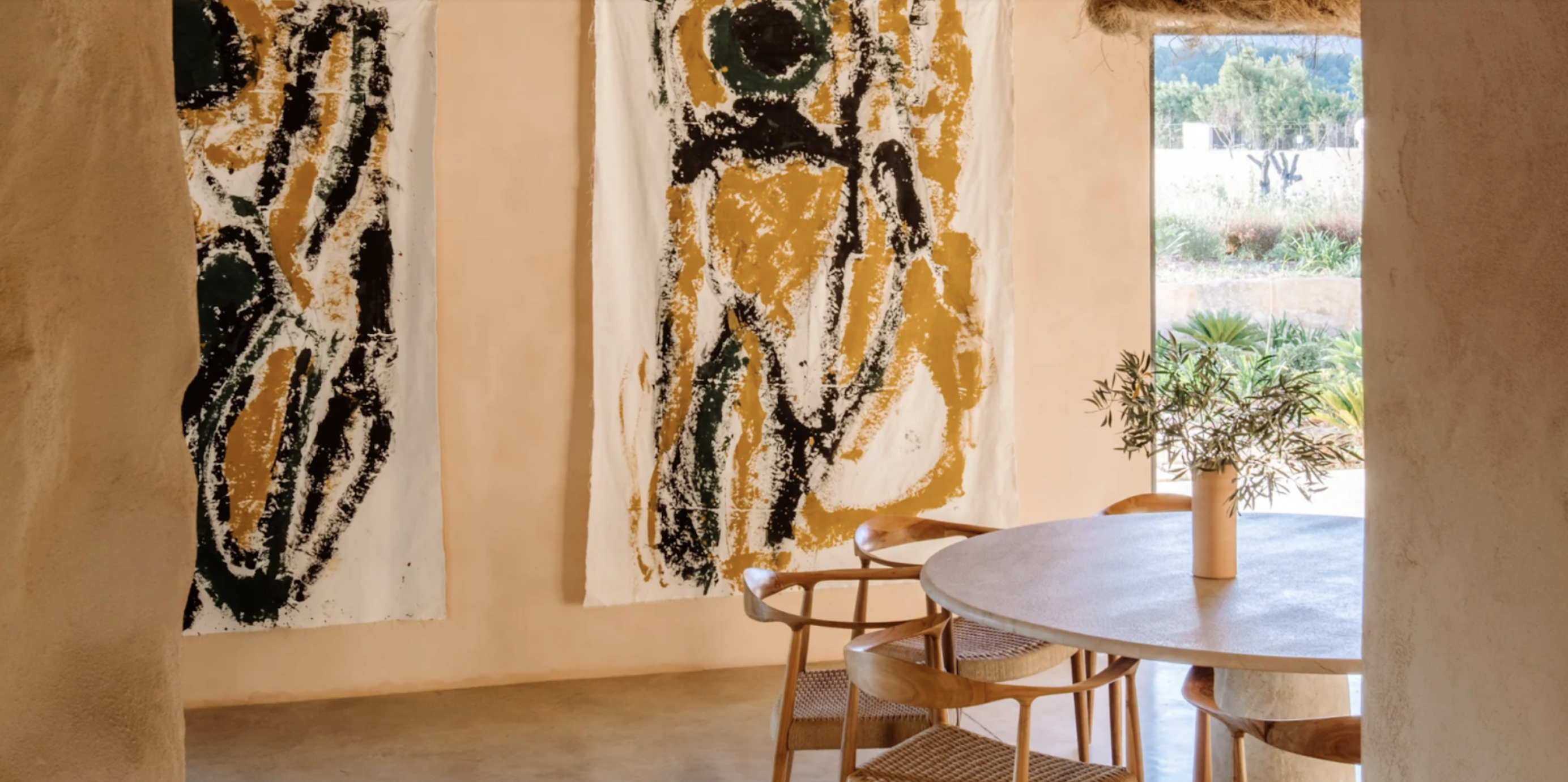 Casa Mana
Casa Mana
Casa Mana is a villa that immediately transports you to the ideal slow living environment.
This private residence is situated on 4 hectares of ecologically certified land in the countryside of Mallorca, flanked by wheat fields and the magnificent Tramuntana mountains. They are committed to sustainable farming, which is the essence of the experience. Everywhere you look and in every element of the house, you are surrounded by manmade hard work.
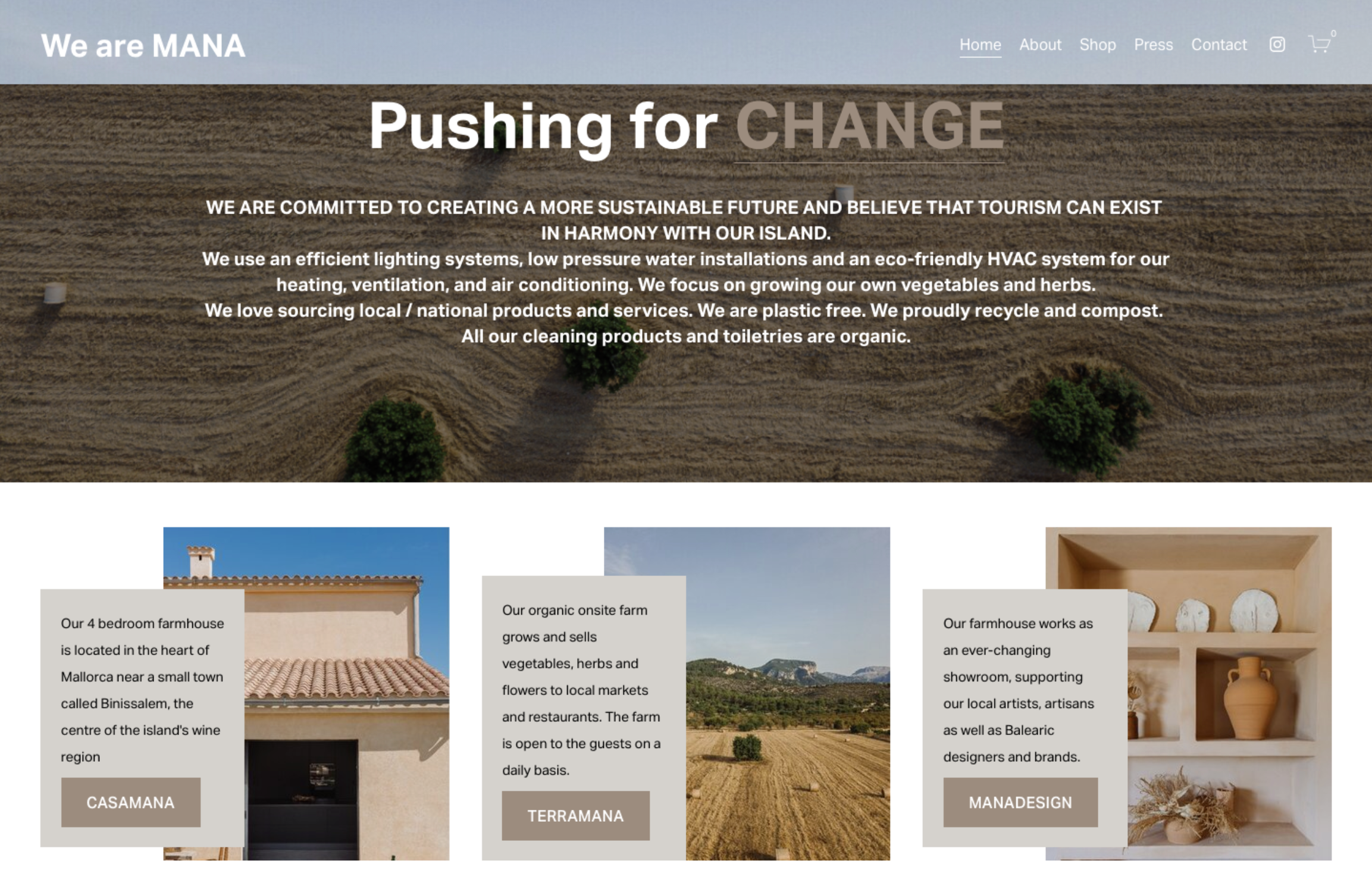 Casa Mana's website
Casa Mana's website
On Mana’s website, they actively communicate their vision, helping to engage like-minded visitors. They endorse their close relationship with the environment and mother nature which helps them spread their message of being an eco-friendly hotel. They also display a lot of elements related to local culture to show how the hotel gives their guests the opportunity to learn more about this. For example, most of the furniture shown is handmade by Mallorcan artists using local materials, which adds to the uniqueness of the place.
Every Saturday the owners post on their social media about the weekly environmental market they host, sharing the products that they grow with the whole community. By promoting these initiatives on social media and including website promotions, the brand is able to reach a greater audience and welcome more visitors to their site.
3. Offering guests unforgettable local cultural experiences
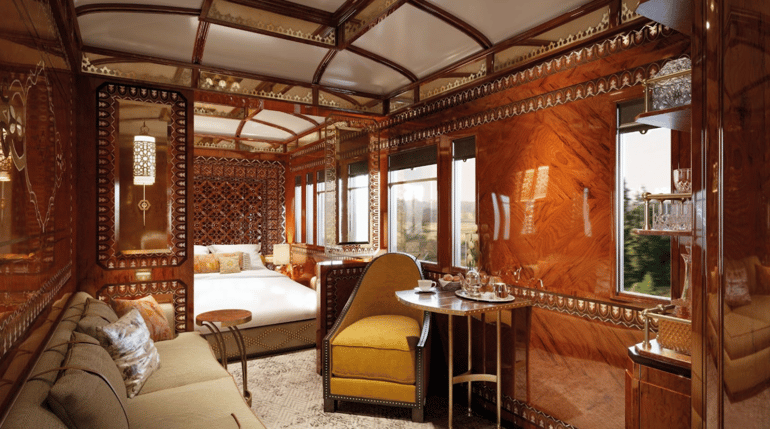 Belmond Venice Simplon-Orient-Express
Belmond Venice Simplon-Orient-Express
One of the world’s most legendary brands in travel, Belmond, is showing us how to take Slow Tourism to the next level. The brand has a dedicated page on their website where guests can literally build their own unique stay and experience. Once the visitor defines what he is looking for, exclusive experiences are showcased, from learning to master the art of Peruvian pottery making to taking part in the Tak Bat dawn ritual in Laos. Through these initiatives, the brand is able to ensure that guests enjoy unforgettable experiences related to local culture during their trip.
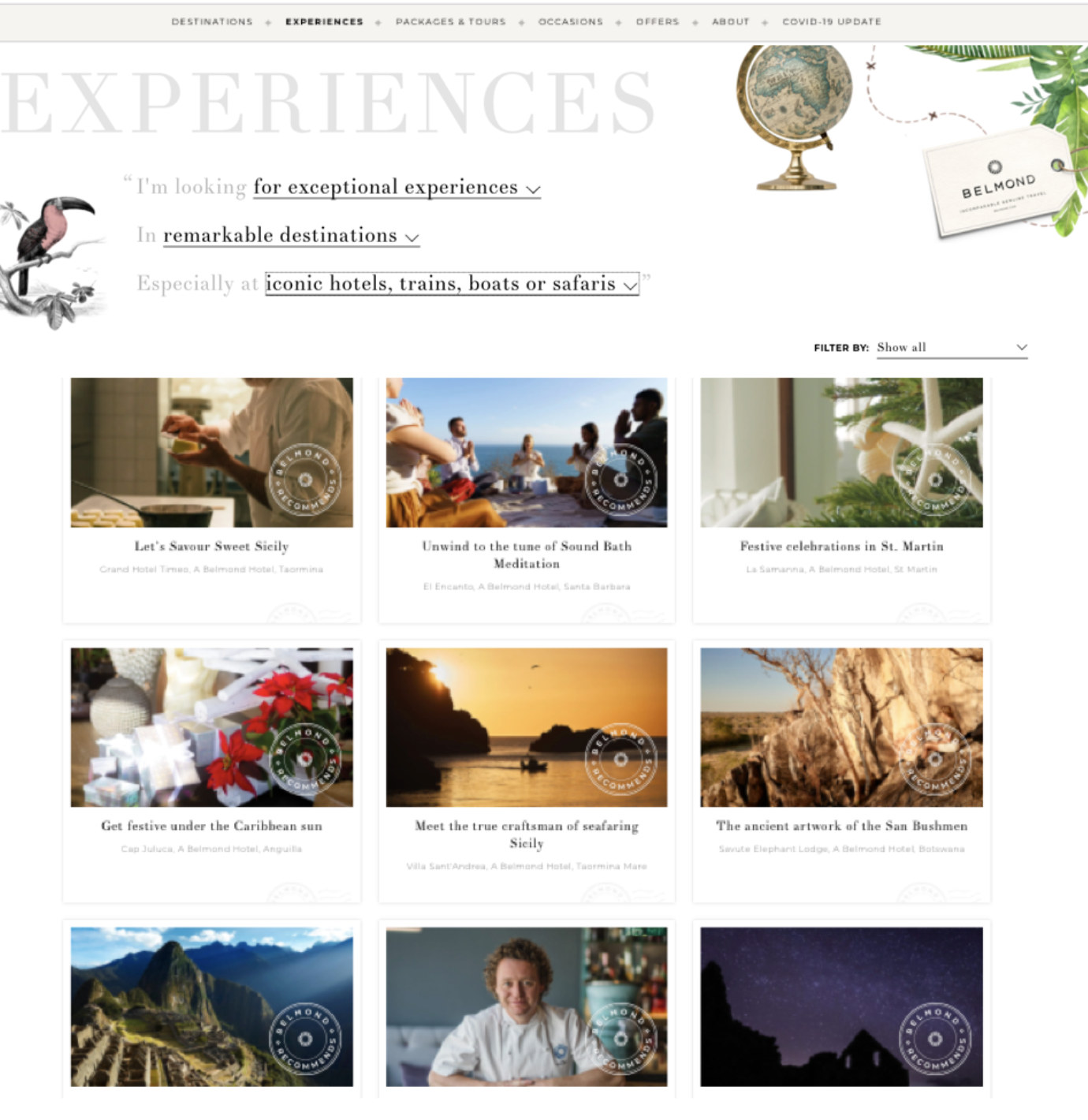 Belmond's selection of personalized experiences
Belmond's selection of personalized experiences
These three hotels are just some of the many examples out there who have invested in incorporating Slow Travel into their hotel offerings. This trend is not going anywhere anytime soon. Catering to those travelers with a keen interest to have a deeper experience rather than just an ordinary stay, will be a great way to boost reservations at your hotel and keep occupancy levels healthy. And don’t forget to promote these tailored packages and bespoke experiences on your hotel website to make sure you give your direct channel that extra boost!

